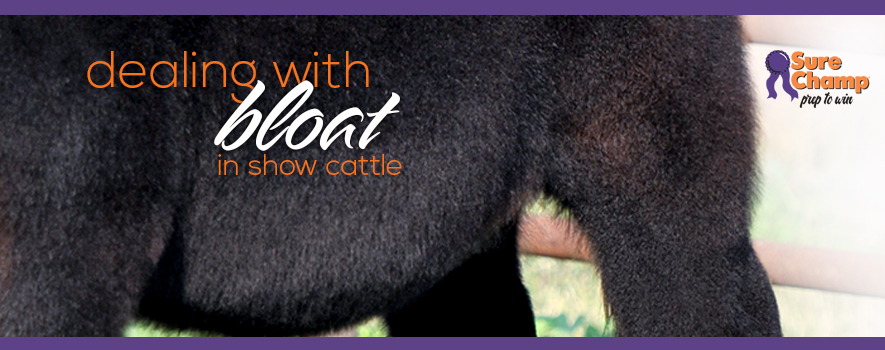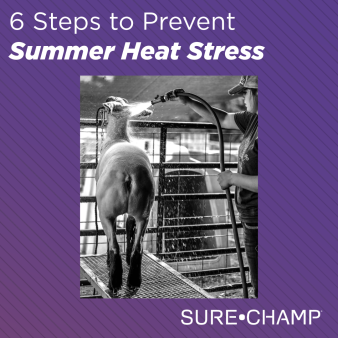
Bloat in show cattle is one of the worst things to deal with. When cattle bloat it causes reductions in feed intake, slowed weight gain and in the worst-case situation, even death. When you are dealing with a chronic bloater, be sure to consult your veterinarian, the breeder that you bought your animal from and/or 4-H or FFA advisors for advice. In addition, use these recommendations from our nutrition team.
Make sure you are feeding enough roughage. Long stem, course hay will help scratch the rumen, and in turn stimulates rumination (chewing their cud) and eructation (relieving gas), both important functions in the prevention of bloat. In show rations there is the tendency to not feed enough fiber, and get energy levels too high.
To improve digestive health, consider feeding a supplement that contains Amaferm®. Nutritionist Dr. Francis L. Fluharty, at The Ohio State University, says, “Amaferm has been shown to reduce the time that animals require to resume consumption during diet transition. It helps to stabilize the rumen environment, research-proven to increase the growth rate of fiber digesting bacteria in the rumen, as well as several strains of the lactate utilizing bacteria. Amaferm also has been shown to stimulate the growth of, and lactate uptake by Megasphaera elsdenii, the predominant lactate utilizing ruminal bacteria.” So what does this all mean? Amaferm should be effective in reducing the incidence of acidosis, and the side-effect of acidosis: bloat.
The best way for your calves to get Amaferm daily is through Sure Champ®. However, during times of stress or to help an animal recover from stressful situations (like an episode of bloat) you might use one of our Vita Charge® products that can be force-fed like our Vita Charge® Liquid Boost® or Vita Charge® Gel.
Finally, for calves that seem to be chronic bloaters you may consider increasing the number of times you feed per day from two to three. This breaks down your ration into smaller meals for your calf to properly digest.

